Vocabulary expansion Normal Our Planet and Environment Worksheets for Ages 6-9
5 filtered results
-
From - To
Enhance your child’s vocabulary with our "Our Planet and Environment" worksheets, designed for ages 6-9. These engaging activities focus on teaching key ecological terms while fostering a deeper understanding of our planet’s natural wonders. Children will explore essential environmental concepts, from ecosystems to climate change, through fun, interactive exercises. Each worksheet is carefully curated to promote language development and critical thinking skills, making learning about our world both enjoyable and educational. Perfect for homework or classroom use, these resources will inspire your little learners to connect with their surroundings while building their vocabulary confidently. Explore our planet together today!
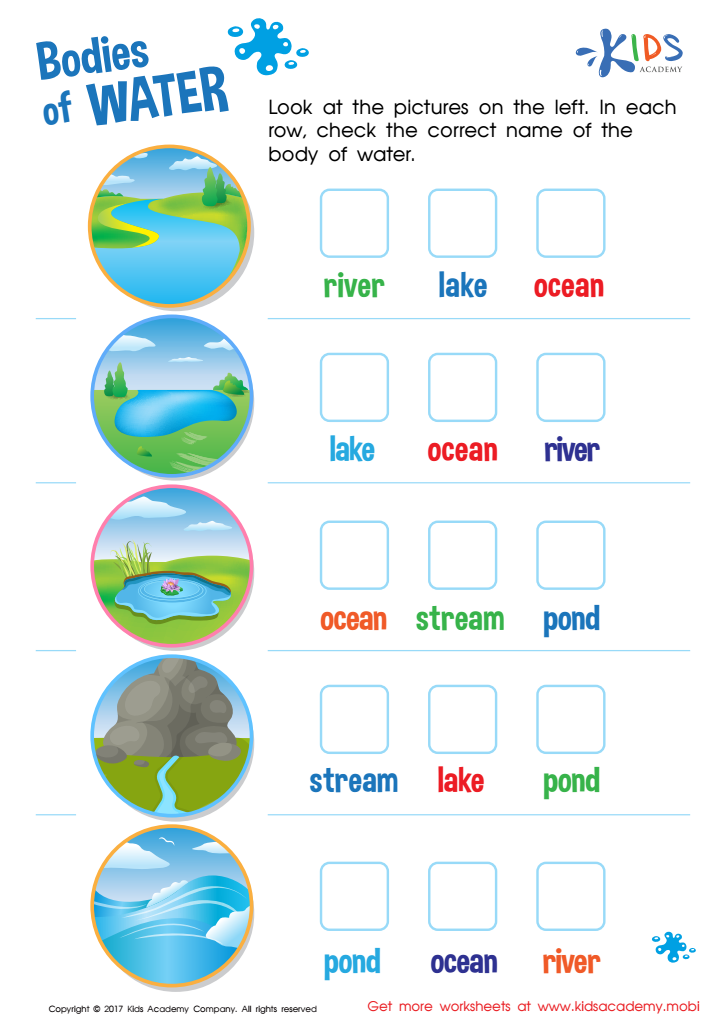

Bodies of Water Worksheet
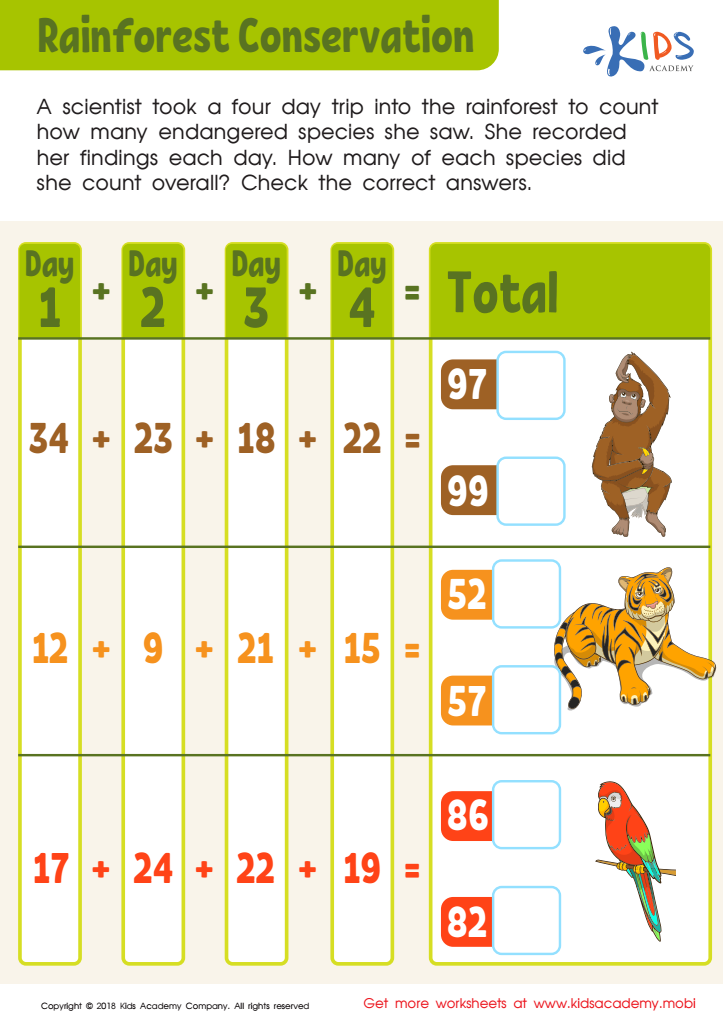

Rainforest Conservation Worksheet
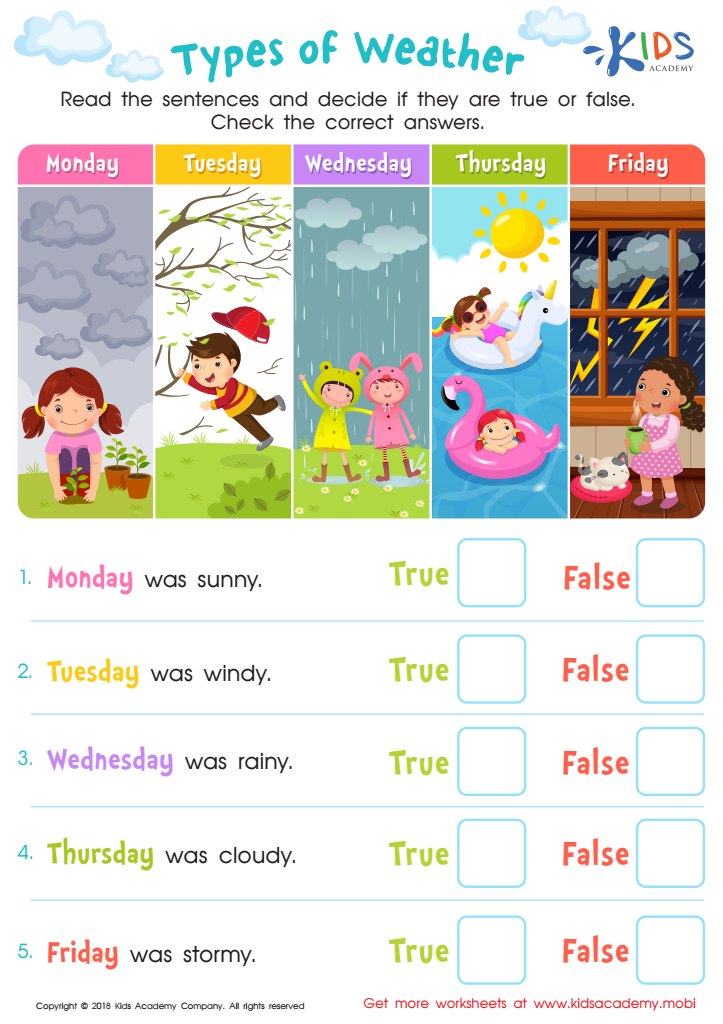

Types of Weather Worksheet
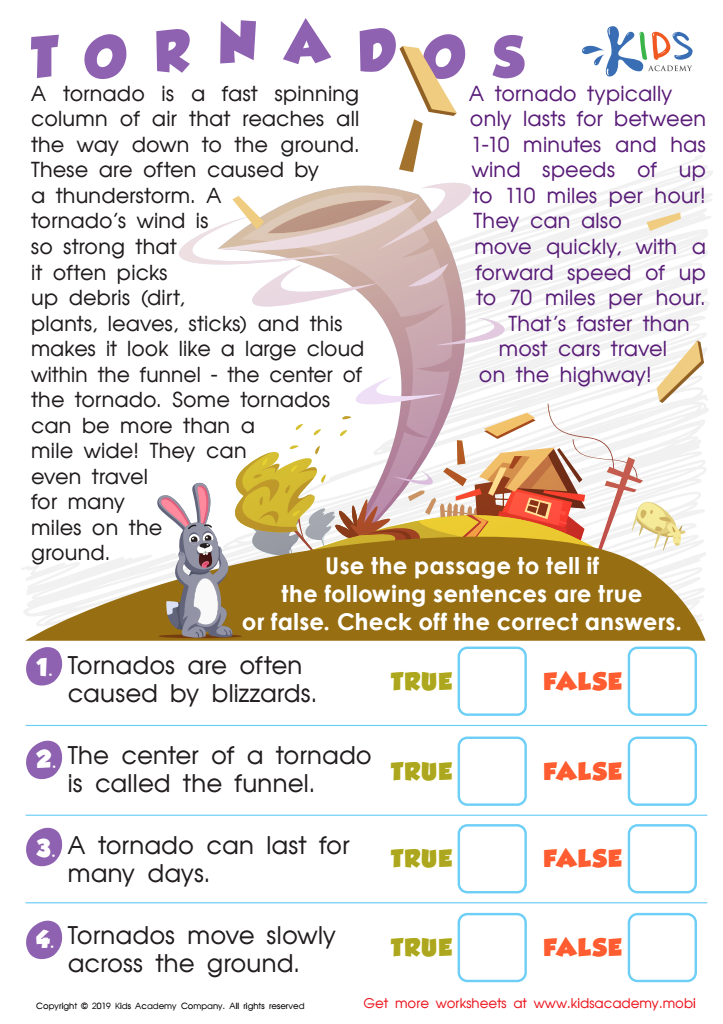

Tornados Worksheet
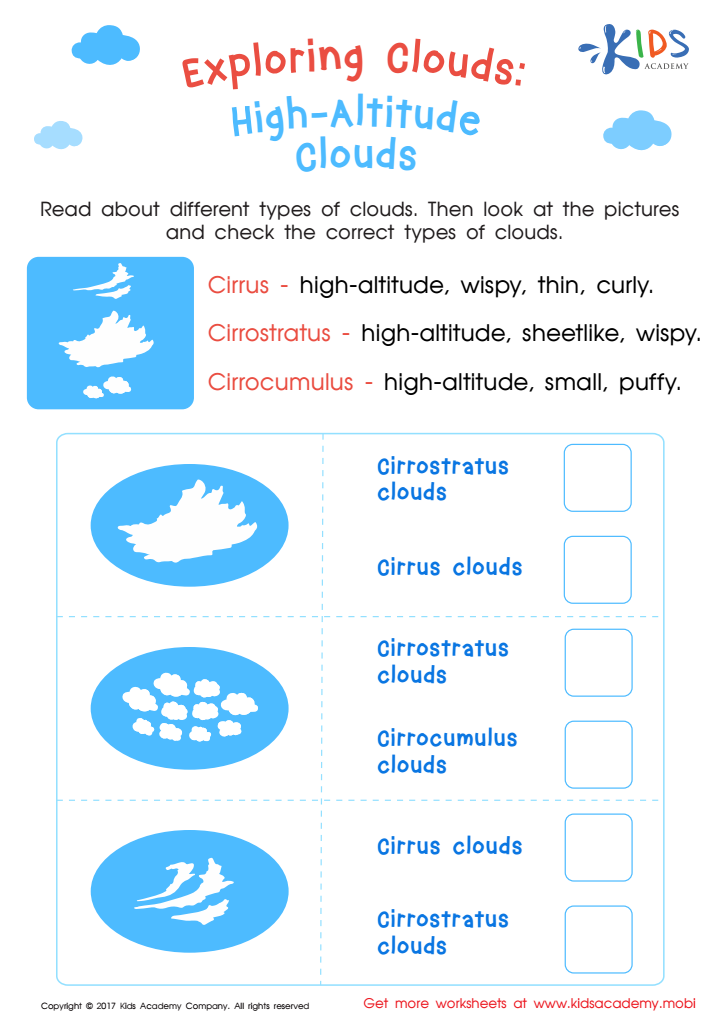

Exploring Clouds: High Altitude Clouds Worksheet
Parents and teachers should prioritize vocabulary expansion concerning "Our Planet and Environment" for children aged 6-9 for several compelling reasons. At this developmental stage, children are particularly receptive to learning new words and concepts, laying the groundwork for strong literacy skills and critical thinking. A robust vocabulary empowers children to articulate their thoughts and feelings about environmental issues, fostering a sense of responsibility towards the planet.
Understanding ecological vocabulary helps children grasp complex topics such as climate change, biodiversity, and sustainability. This knowledge can encourage healthy discussions at home and in school, reinforcing the importance of caring for our environment. Furthermore, fostering an early interest in environmental issues can inspire future activism and stewardship among young learners.
Moreover, vocabulary expansion helps children enhance their reading comprehension and writing skills, which are essential for academic success. When children can engage with texts about the environment, they develop a deeper understanding of their surroundings and the interconnectedness of living systems. Empowering children with the vocabulary to discuss their planet not only enriches their educational experience but also encourages them to become informed, thoughtful citizens who are capable of contributing to solutions for global challenges.
 Assign to My Students
Assign to My Students














